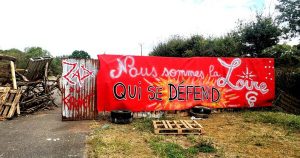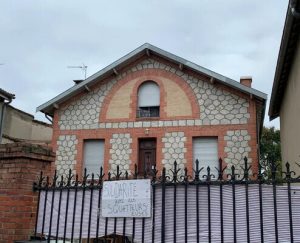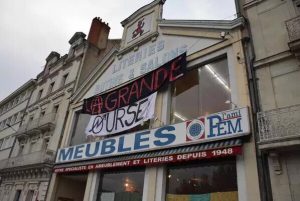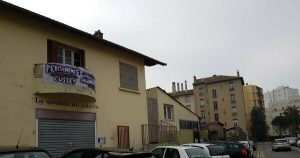Solidarity, not just a word
What do you see when you take a walk around L’Ile Saint Denis – along the river banks, under the bridges, through the squares, the park? Everywhere desperate people hiding in tents, in flimsy constructions of plastic and wood, in the bushes, in any hole they can find. Hiding from the freezing cold, and hiding from the police with their batons, dogs and choking gas.
Over the weeks before the occupation we checked inside the Pavillon Solidaire several times, we wanted to be completely sure no one was using it. What did we find? The doors left open, rubbish piled up, mould growing everywhere, building work unfinished, foul stench of food left to rot, the garden clogged up with leaves, the building literally rotting.
These days it’s a cliché to say we’re living in scenes from a zombie movie. But that’s just what it seemed like, an abandoned house whose inhabitants have fled the apocalypse. A house that could provide a shelter from the cold and fear outside – at least for a few people, at least for a little while. [Read More]
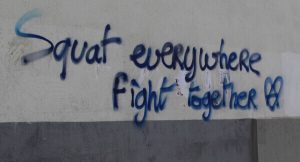 From the 15th to the 18th of february, we carried out a tagging offensive on the walls of Montreuil! Hoping that these walls will carry for a long time to come our solidarity with the threatened places, the ZAD du Carnet, our friends in Toulouse and Rigaerstrasse 94 in Berlin.
From the 15th to the 18th of february, we carried out a tagging offensive on the walls of Montreuil! Hoping that these walls will carry for a long time to come our solidarity with the threatened places, the ZAD du Carnet, our friends in Toulouse and Rigaerstrasse 94 in Berlin.